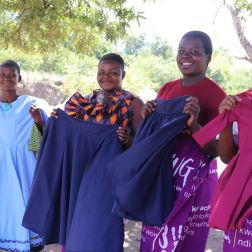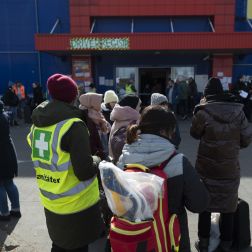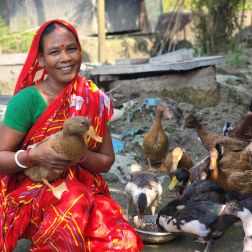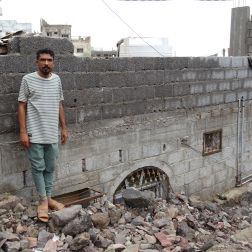- 4 mins read time
- Published: 3rd April 2020
Trapped by the blockade, the people of Gaza cannot escape COVID-19
The recent lockdowns and restrictions make it feel like a strange time to be alive. Sadly, for Palestinians, it’s part and parcel of the struggle of everyday life. And now, as COVID-19 spreads across the globe, they face a new threat.
Pandemic or no pandemic, Gaza is already experiencing a dire humanitarian crisis. A 13-year-long blockade has devastated the economy, caused widespread destruction and left most people largely cut off from the outside world.
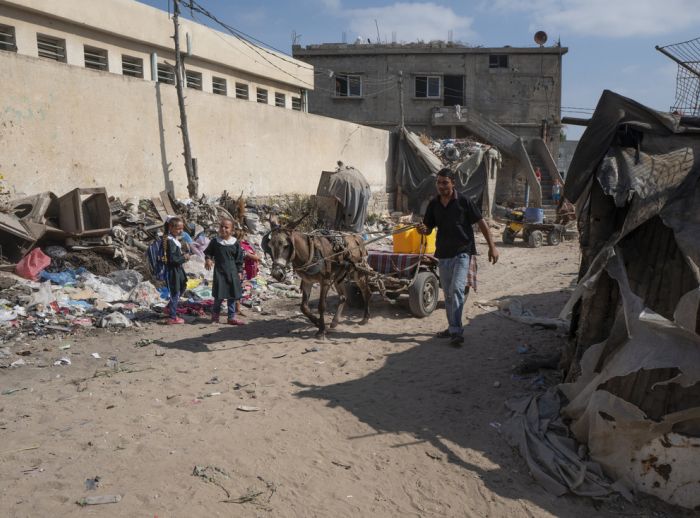
With more than 5,000 people per square kilometre, the besieged enclave – where, as of 3rd April, there were 12 official cases of COVID-19 – is one of the most densely populated places on the planet. Social distancing is key to keeping the virus at bay but Palestinians living under the blockade are trapped. Poor water infrastructure also means that proper hand washing is often impossible.
Residents have nowhere to go and no means of avoiding transmission. In an area where one in eight people relies on life-saving aid, the virus would do untold damage to two million vulnerable people.
A major outbreak is likely to see the collapse of Gaza’s ailing health system, which is already overrun with patients suffering from waterborne diseases. Gaza is also dependent on Israel for critical medical cases, but the threat of COVID-19 has created a level of collaboration between Palestinians and Israelis that has rarely, if ever, been seen before.
As well as the health system implications, COVID-19 could further destroy the economy of Gaza, which already has an unemployment rate of 47 percent. Small shops have shut their doors due to the crisis and business-owners have no income to pay their staff or provide for their own families. With movement restricted even more to prevent a further spread of the virus in Gaza, many families are already finding themselves unable to put food on the table.
With our humanitarian staff in Gaza bracing themselves for the worst, funding is vital to ensure that the weak economy and health system won’t completely collapse
What Oxfam is doing
With the support of Irish Aid, our teams have mobilised to urgently respond to the threat of Covid-19 in Gaza. We are providing protection equipment for healthcare workers, beds for patients in quarantine centres, soap and other essential hygiene products. We’re also providing hygiene kits to vulnerable families through our partner organisations.
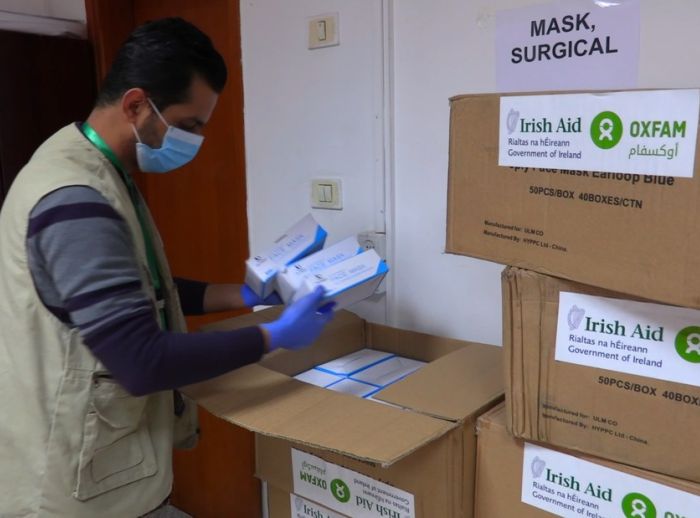
Our water engineers are ensuring public water taps used by the most vulnerable families can be used safely. With no other source of clean water, these families are most at risk of catching the virus.
We’re helping the vulnerable families put food on the table and buy hygiene items and access clean water to protect them from the outbreak. We are currently maintaining 14 water filling points in vulnerable communities where between 35,000 and 70,000 people will need to rely on depending on the severity of the outbreak. In addition, we’re spreading awareness about best hygiene and health practices to avoid further spread of cases across the West Bank, where 148 cases of COVID-19 have been confirmed.

This disease knows no borders and does not discriminate. For the world’s poorest and most vulnerable, the worst is yet to come as the coronavirus begins to establish itself and spread quickly through communities powerless to stop it, without access to water, sanitation or healthcare.
Together, we can save lives.
